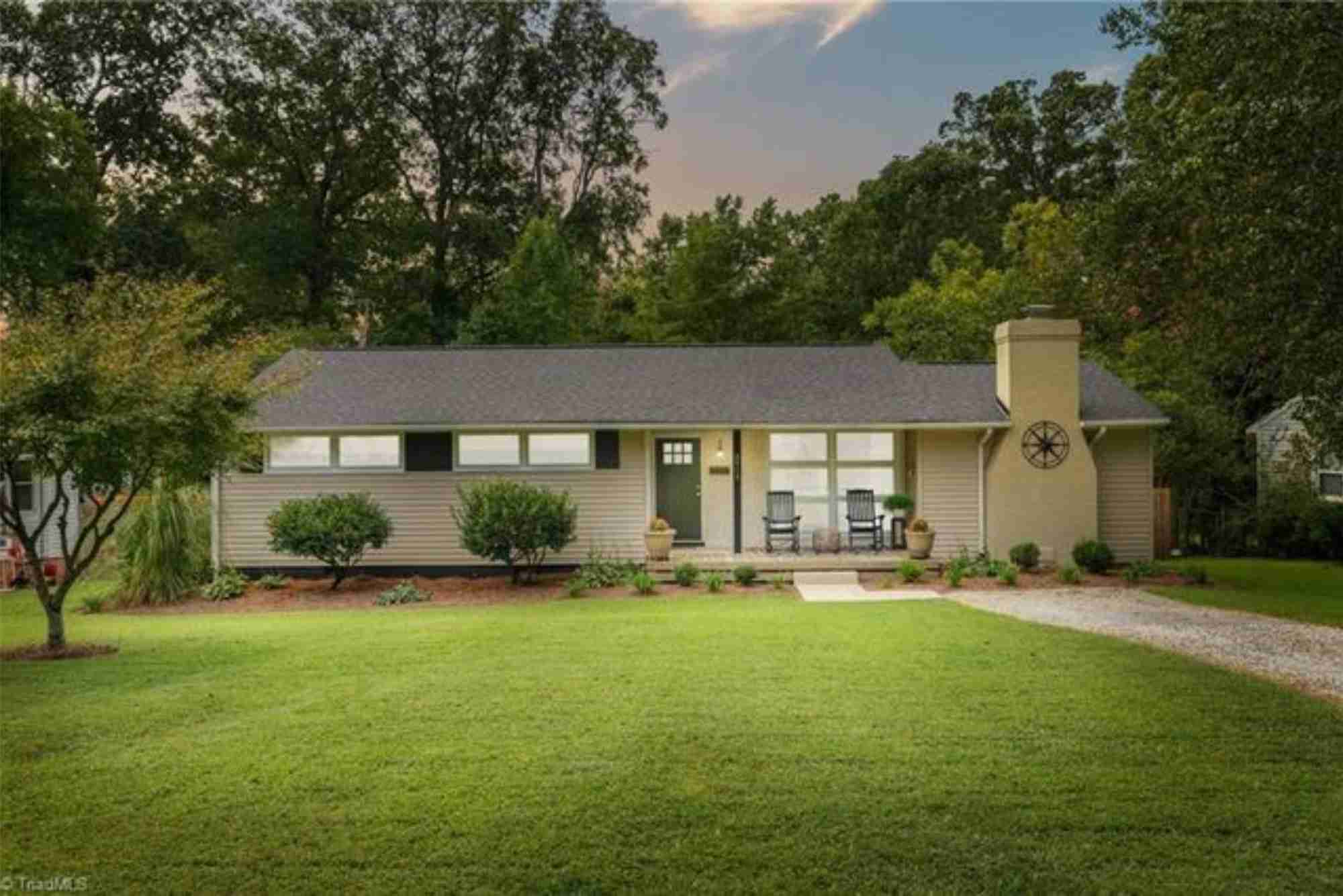Property records are crucial documents that serve as a comprehensive source of information regarding land, property ownership, taxes, and historical data. In Greensboro, North Carolina, property records provide valuable insights for homeowners, potential buyers, real estate professionals, and legal entities. This guide will delve into what Greensboro property records encompass, their importance, how to access them, and the various types of property records available.
What Are Property Records?
Property records are public documents that contain a wealth of information about real estate. These records typically include details such as ownership history, property boundaries, zoning classifications, assessed value, and tax information. In Greensboro, these records are maintained by the Guilford County government, particularly through the Register of Deeds, Tax Department, and other municipal offices.
Property records can provide transparency in real estate transactions, resolve ownership disputes, and assist in legal matters involving property. Understanding how to access and interpret these records can be immensely beneficial for homeowners, real estate professionals, and anyone involved in property transactions.
Types of Property Records in Greensboro
Several types of property records are available in Greensboro, each serving different purposes. Some of the most common include:
Deeds and Title Records
Deeds and titles are fundamental components of property ownership records. They prove legal ownership of the property and detail any transfers or changes in ownership over time. In Greensboro, these records are filed with the Guilford County Register of Deeds. A deed typically includes:
- The names of the current and previous owners
- The legal description of the property
- The sale price (if applicable)
- The date of transfer
These records are essential for confirming ownership, resolving disputes, or verifying historical transfers of a particular property.
Tax Assessment Records
Tax assessment records provide information on the value of a property as determined by the Guilford County Tax Department. These records include:
- The assessed value of the property
- Details on any improvements or additions made to the property
- Tax rates and liabilities
- Historical tax data
Property owners and prospective buyers often refer to tax assessment records to estimate property taxes and understand how the property’s value has fluctuated over time.
Property Maps and Plats
Property maps and plats are essential for understanding the geographical and structural layout of a property. They provide detailed drawings of property boundaries, lot sizes, and physical features like buildings and roads. These records can be useful when dealing with zoning issues, construction projects, or disputes about property lines.
Zoning Records
Zoning records outline how a property is classified in terms of its permitted uses. In Greensboro, zoning classifications determine whether a property can be used for residential, commercial, industrial, or agricultural purposes. Understanding zoning regulations is critical for property developers, homeowners planning renovations, and anyone looking to change the use of a particular piece of land.
Building Permits
Building permits and inspection records offer detailed information about any authorized construction or renovation done on a property. These records ensure that all work complies with local building codes and safety standards. Reviewing building permit records can be helpful when buying or selling a property, as they confirm whether upgrades or alterations were legally approved.
Mortgage and Lien Records
Mortgage and lien records contain information about any outstanding debts associated with a property. A mortgage is a loan secured against the property, while a lien is a legal claim against the property by a creditor. Buyers and sellers often review these records to ensure that a property is free from encumbrances before a sale is finalized.

Importance of Greensboro Property Records
Accessing Greensboro property records can benefit individuals and businesses in several ways:
For Homeowners
Property records are essential for homeowners who want to understand the history and legal standing of their property. These records offer transparency and assurance, confirming property ownership and any legal claims against it. In addition, tax assessment records help homeowners stay informed about their property taxes and potential changes in their property’s value.
For Homebuyers
Potential buyers often refer to property records to learn more about the property they intend to purchase. By reviewing these records, buyers can verify ownership, examine any previous sales, and assess whether there are any liens or outstanding debts. This information can influence decisions during the purchasing process, helping buyers avoid legal complications or unforeseen financial obligations.
For Real Estate Professionals
Real estate agents and brokers frequently rely on property records to provide accurate information to clients. These records serve as a foundation for property appraisals, pricing strategies, and negotiating terms during transactions. Real estate professionals also use zoning records to advise clients on potential property uses and development opportunities.
For Legal Professionals
Attorneys and legal professionals often access property records to resolve disputes related to property boundaries, ownership, and rights of way. These records are official documentation in court cases involving land disputes, foreclosures, or property inheritance issues.
For Researchers and Historians
Historical property records are invaluable for researchers and historians interested in the development of Greensboro’s neighborhoods and architecture. These records can provide insights into how certain areas have evolved, the growth of the city, and the architectural trends over time.
How to Access Greensboro Property Records

In Greensboro, property records are managed and made available to the public by several county departments. Here are some key places where you can access these records:
Guilford County Register of Deeds
The Register of Deeds office is responsible for recording and maintaining deeds, titles, and other legal documents related to property ownership. You can access these records online through the Guilford County Register of Deeds website or by visiting the office in person.
- Website: Guilford County Register of Deeds
- Address: 201 W. Market Street, Greensboro, NC 27401
- Phone: (336) 641-7556
Guilford County Tax Department
For property tax assessments, payment history, and related records, the Guilford County Tax Department is the primary source. Their online platform allows users to search for properties using parcel numbers, addresses, or owner names.
- Website: Guilford County Tax Department
- Address: 400 W. Market Street, Greensboro, NC 27401
- Phone: (336) 641-3362
Greensboro Zoning and Planning Department
Zoning and planning records are available through the Greensboro Zoning and Planning Department. These records are particularly important for developers, builders, and property owners who need to understand zoning classifications, land use regulations, and building codes.
- Website: Greensboro Planning Department
- Address: 300 W. Washington Street, Greensboro, NC 27401
- Phone: (336) 373-2144
Guilford County GIS (Geographic Information System)
Guilford County’s GIS system offers detailed maps and property data for the entire county, including Greensboro. Users can search for properties by address, parcel number, or owner name and view geographical data such as property boundaries and zoning classifications.
- Website: Guilford County GIS
Greensboro property records serve as an invaluable resource for homeowners, buyers, real estate professionals, and legal entities. Whether you’re researching a property’s history, verifying ownership, or seeking information about zoning and taxes, these records provide transparency and essential data. By understanding how to access and interpret property records, you can make more informed decisions regarding real estate, legal matters, and historical research in Greensboro.
Craig McCracken and Amy Luciani are two prominent figures, each excelling in their respective fields. Craig McCracken, a renowned animator, producer, and creator of iconic shows like The Powerpuff Girls and Foster’s Home for Imaginary Friends, has established a legacy in the animation industry. His net worth, estimated to be in the multi-million dollar range, reflects his decades of contribution to television and animation. On the other hand, Amy Luciani, a rising star in the music and social media realms, has captivated audiences with her talent and entrepreneurial ventures. Her net worth, though still growing, showcases her dedication to her craft and ability to engage with fans. Both individuals exemplify success, leveraging their creativity and skills to build impressive careers.









